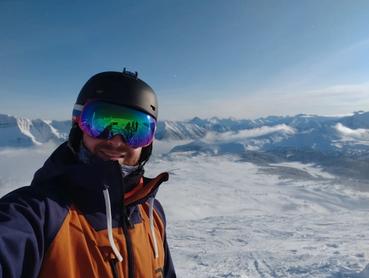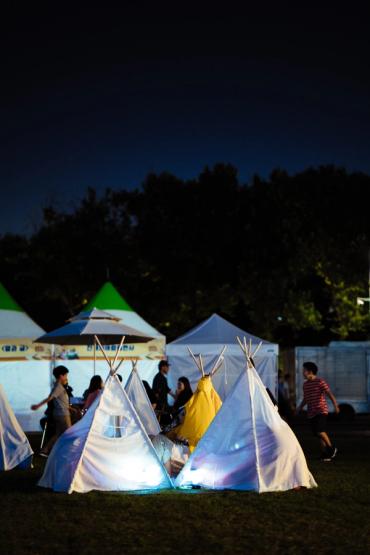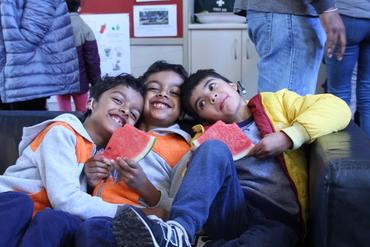My story, my career path - Joshua Ker
Joshua is a disability employment consultant at DCA and Personal Trainer (on weekends!)

Tell us about your diagnosis as a child?
When I was born I was born with something called Microtia, which meant that I was born without ears. More scientifically Microtia is a congenital deformity where the pinna (external ear) is underdeveloped.
If and what age were you fitted with a hearing aid or cochlear implant and what was that like?
When I was very young I was made to wear a “headband hearing-aid” which sat on my head like a headband, and it hurt the sides of my head because it had to be on my head tightly, I had this until I was about 8. When I was 8 I was then fitted with a Bone Anchored Hearing Aid, which is now becoming increasingly popular. Because this was relatively new at the time, it took quite a few appointments and meetings at the hospital (it happened in stages). I was a confident child and even though I was scared at having this done, I wouldn’t let anyone know. Being able to hear and not wear the headband hearing aid felt like a new way to live and felt good. I had several weeks off school, but the teachers and my parents were very supportive, I got to play games in the hospital and watch lots of tv.
I have a memory of coming out of surgery, after the sleeping gas and opening my eyes and my mum waiting at the end of my bed. I appreciate that memory because even though mum had to drive lots to the hospital, have lots of meetings and time off work, what she cared about was trying to give me the best opportunities and chances, she knew how much I hated the headband hearing aid but wanted to support the best for me.
Are you oral and if so, what was your experience like learning spoken language?
My mum says that when I was a baby I was fascinated in watching people's lips when they tried to talk to me, she thinks that it was me trying to lip read when I was very young. I was fitted with a headband hearing aid which allowed me to hear but was enrolled in a deaf school. Audiologist then encouraged my mum to enrol me into a very small mainstream school. I had speech-pathologist work with me to ensure I learnt spoken language.
Do you use Auslan, why did you decide to learn and at what age?
I don’t, but am relearning it now.
How did you communicate within your family and amongst friends?
I communicated with my family and friends through spoken language. Sometimes I ask people to repeat what they said, but people are more than happy too.
Tell us about going to school - what was that like? What were the worries you had that you remember?
I remember going to school was a big experience, I had to learn to adapt to crowds and all sorts of sounds. I remember the assemblies were very loud and I got one-on-one help from Teacher’s aids to ensure I was hearing the content the teacher was teaching. I remember some kids asked what happened to my ears, and telling them I was born like it. I don’t specifically have any ‘worries’ that I remember, but I did have some great friends who did not care about whether I had a hearing aid, or had no ears, and I still have those friends to this day.
I enjoyed my school experience now that I reflect on it, I wish I took more help instead of letting my pride get in the way.
And tell us about going to Uni or TAFE - what was that like?
When I studied higher education I had really accepted who I am, and developed the skills to reach out for support if needed. I did not have as many people ask me what happened to my ears or why I use a hearing-aid, but I openly make jokes to encourage conversation about it. It took a while, but I really love who I am and now understand that being different is not so bad, positive in some situations.
I know when I have not understood/heard something clearly and am able to reach out for help.
The experiences I had when I was younger really helped construct the person I am now.
What influenced your career choices?
I wanted to work with and help people, I have lived experience to support those who feel different.
I love helping people and I love being involved in other people's journeys with their goals. I work with people with disabilities and I think that when they see I’m also someone with a disability that I can understand in a different way. I’m a Personal Trainer (on the weekends) because I’m passionate about working on yourself and despite differences we all want to be healthy and it’s possible for everyone. I also work with autistic children (on the weekends) because I’m passionate about supporting children and families.
Do you love what you do?
I love what I do, because when you see someone reach a goal or a milestone, you can really see how happy it makes them.



